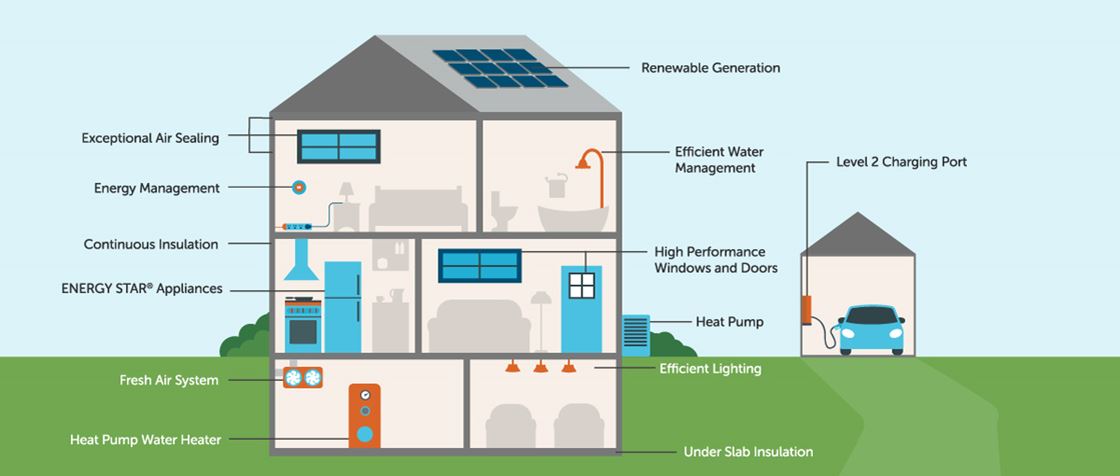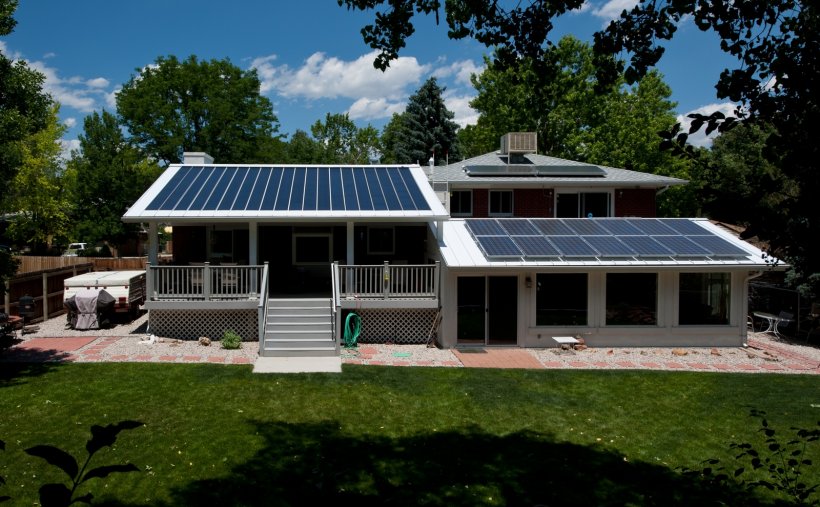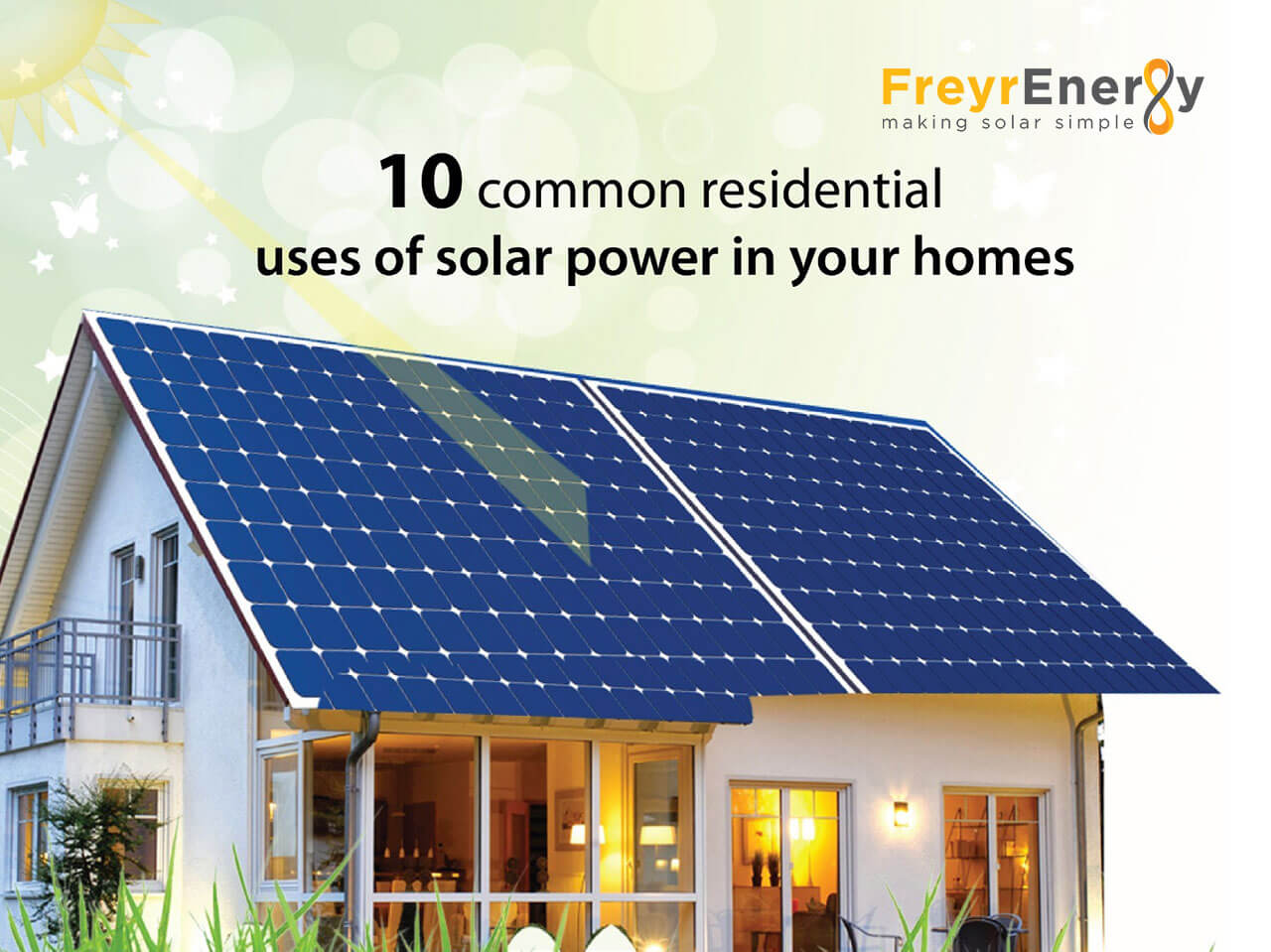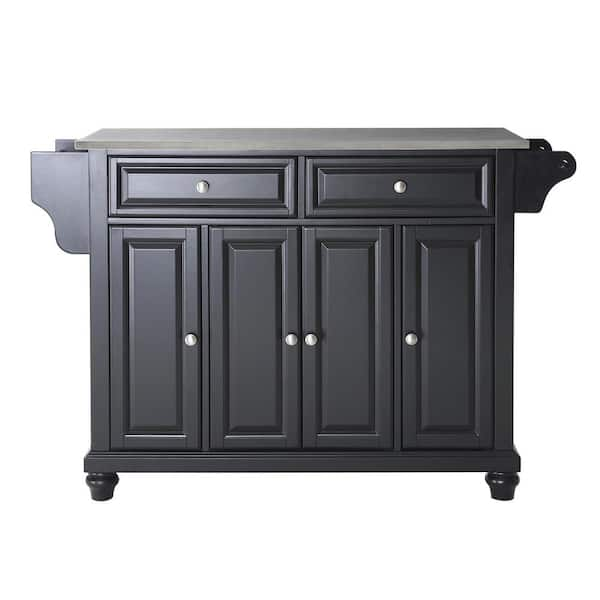Can I Heat My House With Solar Energy: Ultimate Guide
Imagine a home where your heating bills are significantly reduced, and you’re harnessing the power of the sun to keep warm. Sounds intriguing, right?
As the chilly months approach, you might be wondering if solar energy can be the solution to heat your home efficiently. You’re not alone in this curiosity. Many homeowners are exploring sustainable options to reduce their carbon footprint and energy costs.
So, can you really heat your house with solar energy? This article will walk you through the possibilities and practicalities, unraveling the benefits and challenges of embracing solar power for heating. Get ready to discover how you can transform sunlight into cozy warmth, and perhaps, change the way you think about home heating forever.

Credit: www.efficiencyvermont.com
Benefits Of Solar Heating
Heating your home with solar energy offers numerous advantages. Solar heating systems harness the sun’s power, providing clean and renewable energy. This sustainable approach not only benefits the environment but also cuts down on energy costs. Exploring the benefits of solar heating can help you decide if it’s right for your home.
Solar heating reduces reliance on fossil fuels. It lowers carbon emissions significantly. This means a smaller carbon footprint for your household. Embrace solar energy and contribute to a cleaner planet.
Cost Savings
Solar heating systems can lead to substantial savings. Lower energy bills are a big advantage. Once installed, maintenance costs are minimal. Over time, the savings grow, making solar heating a smart investment.
Energy Independence
Solar heating provides energy independence. Rely less on utility companies. Generate your own energy at home. Experience fewer disruptions during energy shortages. Enjoy peace of mind knowing your energy supply is secure.
Long-term Value
Solar systems add value to your property. Homes with solar installations often sell faster. Buyers appreciate the energy savings and environmental benefits. Investing in solar heating can increase your property’s market appeal.
Low Maintenance
Solar heating systems require little upkeep. Most systems have few moving parts. This results in reduced maintenance needs. Regular cleaning and inspections keep them running efficiently. Enjoy hassle-free heating for years to come.
Technological Advancements
Solar technology continues to advance. Modern systems are more efficient than ever. Improved designs maximize energy collection. This ensures optimal performance in various climates. Harness the latest technology for better energy solutions.
Types Of Solar Heating Systems
Heating your home with solar energy is not only eco-friendly but can also save you a significant amount on energy bills. There are different types of solar heating systems you can choose from, each with unique benefits and features. Understanding these systems will help you make an informed decision about the best option for your home.
Active Solar Heating
Active solar heating systems use mechanical and electrical equipment to collect, store, and distribute solar energy. They typically involve solar panels combined with pumps or fans to circulate heat.
Imagine waking up on a chilly morning and knowing that your home is heated by the sun. With active solar heating, you can achieve this. These systems can be integrated with your existing heating system, providing a seamless experience.
Consider a solar collector, which absorbs sunlight and converts it into heat. This heat is then transferred to your home through a system of pipes filled with water or air. As a homeowner, you have the power to control this system, adjusting it to meet your heating needs.
Passive Solar Heating
Passive solar heating is all about harnessing the natural power of the sun without mechanical systems. This method relies on building design and material selection.
Think about your windows. Properly placed and sized windows can capture sunlight and heat your home naturally. Using materials like concrete or brick can store heat during the day and release it at night.
Have you ever considered the impact of your home’s orientation? Positioning your house to maximize sun exposure is a crucial aspect of passive solar heating. It’s a simple yet effective strategy. But here’s a question: Are you willing to redesign your space to embrace solar energy?
Both active and passive solar heating systems offer unique benefits. Whether you choose to utilize mechanical systems or rely on clever design, solar energy can be a sustainable solution to heating your home. Which system speaks to you the most? Consider your lifestyle, budget, and home structure before making a decision. The sun is a powerful ally—how will you harness its energy?
Components Of A Solar Heating System
Solar energy can effectively heat homes using key components like solar collectors, heat exchangers, and storage tanks. These systems capture and distribute warmth efficiently, offering a sustainable solution for residential heating. Proper installation ensures optimal performance and energy savings.
Thinking about heating your home with solar energy? It’s not just about installing panels on your roof and hoping for the best. Understanding the components of a solar heating system is crucial. These systems comprise several parts, each playing a vital role in harnessing the sun’s energy to keep your home warm and cozy.Solar Collectors
Solar collectors are the heart of your solar heating system. They capture sunlight and convert it into heat. The two main types are flat-plate collectors and evacuated tube collectors. Flat-plate collectors are often used for heating water in climates where freezing is rare. Evacuated tube collectors work well in colder areas and can heat both water and air effectively. Imagine waking up to a sunny morning, knowing that your collectors have been hard at work, capturing energy even while you slept.Heat Storage Systems
Once you’ve collected solar energy, you need to store it. This is where heat storage systems come in. They ensure you have access to heat even when the sun isn’t shining. Many systems use a water tank or a concrete slab to retain heat. The stored heat can then be used throughout the day or night. Think about those chilly winter evenings when you want to relax in a warm home without running up your electricity bill. The right storage system makes it possible.Distribution Systems
Now that you’ve captured and stored the heat, how do you distribute it throughout your home? Distribution systems take care of this important task. These systems can include radiant floor heating, baseboard heaters, or forced-air systems. Radiant floor heating is particularly popular for its comfort and efficiency. It’s amazing to feel the warmth under your feet on a frosty morning. Efficient distribution is key to making sure every corner of your home stays comfortable. Have you considered how these components could fit into your home? Each part of the system plays a unique role in creating a sustainable and efficient heating solution. By understanding how they work together, you can make informed decisions about integrating solar energy into your daily life.Installation Process
Heating your home with solar energy is a smart choice. It saves money and helps the planet. The installation process is crucial. It ensures your system works efficiently. Here’s what to expect during installation.
Site Assessment
A site assessment is the first step. Experts check your roof and property. They look at sunlight exposure. Shade from trees or buildings is noted. The angle and size of your roof are important. This helps decide the best placement for panels.
Choosing The Right System
The right system depends on your needs. Consider the size of your house. Think about how much energy you use daily. Panels vary in efficiency and size. Some systems include battery storage. This stores energy for use at night. A specialist can guide you in choosing the best fit.
Professional Installation
Professional installation ensures safety and efficiency. Installers mount panels securely. They connect them to your home’s power system. Wiring is done carefully to prevent issues. Professionals test the system before completion. This ensures everything works perfectly.
Cost Considerations
Heating your house with solar energy offers many benefits. One crucial aspect is understanding the costs involved. Let’s explore the initial investment, operational costs, and financial incentives.
Initial Investment
Installing solar panels requires a significant upfront cost. The price can vary based on system size and quality. Home size and energy needs also impact costs. Researching different providers helps find the best deal. Some companies offer financing options to spread payments. This can make the initial investment more manageable.
Operational Costs
Solar systems have low maintenance costs. Regular cleaning and occasional checks keep them efficient. Many systems come with warranties, reducing unexpected expenses. You can save money on electricity bills. Solar energy reduces reliance on traditional power sources.
Financial Incentives
Governments often offer financial incentives for solar energy. Tax credits and rebates can lower initial costs. These incentives vary by location. It’s important to check local options. Some utility companies provide benefits for solar users. This can further enhance savings.

Credit: freyrenergy.com
Efficiency And Performance
Solar energy offers a clean way to heat your home efficiently. Panels capture sunlight, transforming it into usable warmth. This method enhances performance while reducing reliance on traditional heating sources.
When considering heating your home with solar energy, understanding efficiency and performance is crucial. You might wonder how effective solar energy can be in maintaining a warm and cozy atmosphere during chilly months. This section will guide you through the factors that influence solar heating efficiency and how you can optimize it for your home.Factors Affecting Efficiency
Several elements impact the efficiency of solar heating systems. Geographical location plays a significant role; homes in sunnier regions naturally receive more solar energy. Additionally, the orientation and angle of your solar panels can drastically affect performance. Panels that face south and are tilted at an optimal angle capture more sunlight. Panel quality and technology also matter. Modern panels often offer higher efficiency due to advanced materials and design. Lastly, consider the size of your solar array. A larger setup might be necessary for homes with higher heating demands. Do you think your home is positioned to maximize solar efficiency?Maximizing Solar Gain
To get the most out of your solar heating system, focus on maximizing solar gain. Regular maintenance of your solar panels is vital. Dust and debris can significantly reduce their efficiency. Cleaning them every few months ensures they capture the maximum amount of sunlight. Consider integrating a solar thermal system. This can be a game-changer as it directly uses sunlight to heat water, which can then be used to warm your home. Using energy-efficient windows and insulation can also help retain the heat generated, ensuring your home stays warm for longer periods. Imagine stepping into your sun-drenched living room on a winter’s day, feeling the warmth that costs nothing. Isn’t that worth a little extra effort? Do you see now how a few simple strategies can dramatically boost your solar heating performance?Maintenance Requirements
Maintaining a solar heating system involves routine checks and cleaning panels to ensure efficiency. Inspect wiring and connections to avoid energy loss. Regular maintenance helps extend the lifespan and performance of the system, keeping your home warm sustainably.
Switching your home to solar energy can be both exciting and daunting. While the benefits are numerous, understanding the maintenance requirements is crucial for long-term success. Regular upkeep not only ensures efficiency but also extends the lifespan of your solar system. So, what does maintaining a solar-powered heating system entail?Regular Inspections
Regular inspections are the backbone of a well-maintained solar energy system. Ideally, you should schedule professional check-ups at least once a year. This helps identify potential issues before they escalate into costly repairs. Inspectors typically look for loose wiring, dirt accumulation, and any signs of wear and tear. You can also do a visual check yourself to spot obvious issues like cracked panels. Make these checks a part of your seasonal routine, just like swapping out storm windows or cleaning gutters.Troubleshooting Common Issues
Even with regular inspections, problems can arise. Being able to troubleshoot common issues can save you both time and money. One frequent issue is a drop in energy output. This could be due to shading from growing trees or accumulated dirt on the panels. Regularly trim any overhanging branches and clean the panels to maintain optimal efficiency. Another common problem is faulty wiring, which can cause energy loss or system shutdowns. If you notice flickering lights or unusual noises, it might be time to call in a professional. But don’t panic—most issues are simple fixes if caught early. Have you ever thought about how much energy you might be losing just because of a small oversight? Knowing how to identify and address these issues can make your solar journey smoother.
Credit: www.energy.gov
Environmental Impact
Thinking about heating your home with solar energy? It’s a great choice for the environment. Solar energy offers a cleaner, greener way to warm your house. It reduces reliance on fossil fuels. This means fewer greenhouse gas emissions. Let’s explore the environmental impact of using solar energy for heating.
Reducing Carbon Footprint
Solar panels capture energy from the sun. This process emits no carbon dioxide. Traditional heating systems often burn fossil fuels. Burning fuels releases carbon dioxide. Solar energy significantly lowers your home’s carbon footprint. This helps fight climate change.
Conserving Natural Resources
Fossil fuels are finite. Solar energy is abundant and renewable. Using solar power conserves these precious resources. It allows future generations to benefit from them.
Decreasing Air Pollution
Solar energy reduces air pollution. It doesn’t produce harmful emissions. Conventional heating systems emit pollutants. These contribute to poor air quality. Choosing solar leads to cleaner air. This benefits everyone’s health.
Promoting Sustainable Living
Switching to solar supports sustainable living. It encourages the use of renewable energy sources. This helps to create a more sustainable world. Solar energy is a step towards a greener planet.
Comparing Solar Heating To Other Methods
Heating your home with solar energy is an eco-friendly choice. But how does it compare to other heating methods? Understanding these differences can help you decide what’s best for you. Let’s explore solar heating, traditional heating, and hybrid systems.
Solar Vs. Traditional Heating
Solar heating uses energy from the sun. It’s renewable and reduces carbon footprint. Traditional heating relies on fossil fuels or electricity. These sources can be expensive and less sustainable. Solar panels absorb sunlight, converting it to heat. This system lowers utility bills over time. Traditional heating systems may have higher initial costs and ongoing expenses. Solar heating is quieter and requires less maintenance.
Hybrid Systems
Hybrid systems combine solar and traditional heating. They offer flexibility and reliability. On cloudy days, traditional heating provides backup. Hybrid systems optimize energy use. They help maintain consistent warmth in your home. These systems can be more efficient and save money. Installing a hybrid system can be a smart investment. It balances eco-friendliness with practicality.
Frequently Asked Questions
How Effective Is Solar Heating For Homes?
Solar heating can be highly effective for homes, especially in sunny regions. It reduces reliance on traditional energy sources and lowers electricity bills. Proper installation and maintenance optimize performance. Solar heating systems can provide sustainable, eco-friendly heating solutions. However, effectiveness varies depending on location, climate, and system type.
Can Solar Panels Heat A House In Winter?
Solar panels can heat a house in winter but may require supplemental heating. In colder months, efficiency might decrease due to less sunlight. Combining solar panels with efficient insulation and energy storage can enhance winter performance. It’s crucial to assess your home’s energy needs and local climate conditions.
Is Solar Heating Cost-effective For Residential Use?
Solar heating is cost-effective long-term due to reduced energy bills and potential tax incentives. Initial installation costs can be high, but savings accrue over time. It offers eco-friendly heating solutions, increasing property value. Evaluating energy needs and available sunlight is essential for maximizing cost-effectiveness.
What Are The Benefits Of Solar House Heating?
Solar house heating offers numerous benefits, including reduced energy bills and environmental impact. It provides sustainable, renewable energy solutions. Homes with solar heating systems can increase in value. Additionally, homeowners may qualify for tax incentives. Properly maintained systems ensure reliability and long-term savings.
Conclusion
Solar energy offers a clean way to heat your home. It’s efficient and reduces electricity bills. Solar panels convert sunlight into energy. This energy heats your home. Installation costs may seem high. But, savings over time make it worthwhile. Solar heating also helps the environment.
Less fossil fuel use means less pollution. Consider your location’s sunlight availability. This affects your system’s efficiency. Think about your home’s energy needs, too. Consult a solar energy expert for guidance. Explore this sustainable option. Embrace solar energy for a warmer, greener home.





